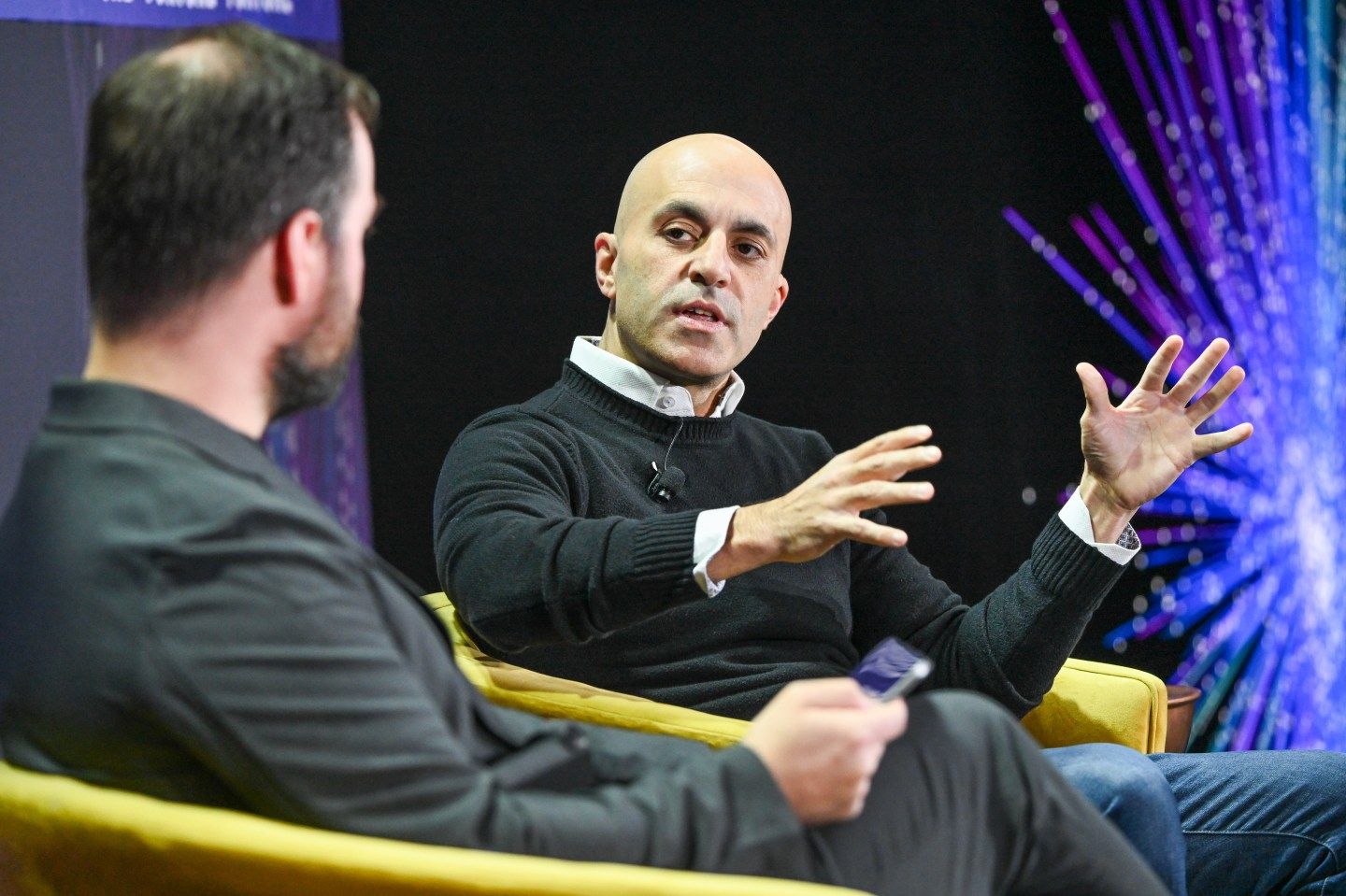Good morning!
Every three weeks an extreme weather event inflicts more than $1 billion in damage across the U.S., according to the 2023 U.S. National Climate Assessment report. The frequency of these catastrophes has increased dramatically over the last few decades—they happened every four months 40 years ago—and the problem is only expected to get worse.
In light of the new normal, more companies may start offering climate change protection benefits to employees, according to management consulting firm Gartner, in a report published on Wednesday.
“When you think about it from a business perspective, this is definitely going to happen. So how do we make it as functional as possible for our employees?” Says Emily Rose McRae, senior director analyst at Gartner. “Or are we a company that has to shut down for fire season, or hurricane season, or during heavy periods of rain? That could be one option, but that’s a little hard.”
But what exactly is involved in climate change benefits? McRae says there are three main ways employers can go about building climate resilience into their employee offerings.
—Providing physical safety for employees, as well as their families or loved ones during or after a natural disaster. This can include stocking a storage closet at the office with ready-to-eat meals that employees can grab during emergency evacuations, providing generators or solar chargers for employees to use at home in case of power outages, or outfitting weather-safe corporate property like warehouses with cots to use as emergency shelters.
—Compensation for affected employees. This could include designating PTO for emergency evacuations (often referred to as “climate leave”), monetary benefits for hardship, subsidizing homeowners insurance, or expanding wellness stipends to include air purifiers for those affected by wildfire smoke.
—Mental health support that addresses the stress and trauma that natural disasters may cause.
The last point is particularly relevant to McRae, who moved to New Orleans five days before Hurricane Katrina decimated the region in 2005. When she returned to the city afterward, the collective trauma was “palpable,” she says.
“People had a different way of interacting with one another—even as they had joy at seeing people being back—all of these different things they were also carrying with them, this burden of stress and anxiety and concern,” says McRae. “When you think about the fact that it would be your entire workforce going through it, the need to support your teams and actually think through the realities of the mental health toll of climate change and natural disasters isn’t small.”
Some companies have already started offering benefits aimed at supporting workers affected by the climate crisis. In 2017, software company Glitch unveiled a climate leave policy granting employees impacted by extreme weather five days off annually. (Note: Glitch was acquired by cloud services provider Fastly, which offers unlimited paid time off.) The decision to offer the benefit was motivated by the company’s Manhattan office losing power during 2012’s Superstorm Sandy and when employees based across the U.S. Were similarly impacted by hurricanes in subsequent years.
“If we’re not committing to taking care of our employees during extreme weather events,” Anil Dash, CEO of Glitch, wrote at the time, “we’re not fulfilling our responsibilities to our team.”
Paige McGlauflin
[email protected]
@paidion
Around the Table
A round-up of the most important HR headlines.
- Starbucks CEO Laxman Narasimhan wrote about Israel-Hamas war protesters in his annual company letter to workers, saying that many stores experienced vandalism, and that protesters were “influenced by misrepresentation on social media of what we stand for.” Wall Street Journal
- Employees might be getting a fatter paycheck thanks to an IRS inflation adjustment that changes employer withholding. That goes hand in hand with other changes to tax brackets, standard deductions, and retirement contribution limits for 2024. Axios
- All eyes are on New York and Seattle, two cities that are in the process of implementing new laws that change the way gig workers get paid, and intend to bring earnings up to minimum wage. Bloomberg
- Forget white collar or blue collar—we’re now in the age of “new collar” jobs. These are often positions in high tech fields that require skills but not degrees— and hiring managers are already pivoting to this new paradigm. New York Times
Watercooler
Everything you need to know from Coins2Day .
Sexual assault lawsuit. Paula Abdul has filed a lawsuit against a former American Idol producer accusing him of sexual assault in the early 2000s. The suit was filed in a one-year window that allowed victims of sexual abuse to pursue legal action even if a previous statute of limitations ran out. —AP
Page turners. Check out these books to help sharpen your leadership skills. —Orianna Rosa Royle
No nest egg. Americans aren’t ready for retirement—three out of four middle income older people are going to have to sell their homes within the next 10 years to pay for assisted living expenses. —Sarita A. Mohanty
On workers’ minds. These are the trends that workers cared about in 2023—and they’re likely to reshape business in 2024. —Orianna Rosa Royle
Social savants wanted. If you want to land a tech job you don’t necessarily need to learn how to code—but you should probably brush up on your language skills. —Ryan Hogg
This is the web version of CHRO Daily, a newsletter focusing on helping HR executives navigate the needs of the workplace. Sign up to get it delivered free to your inbox.












